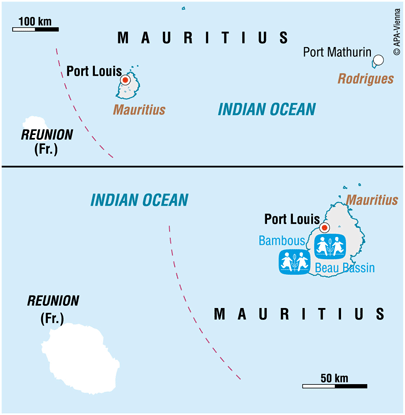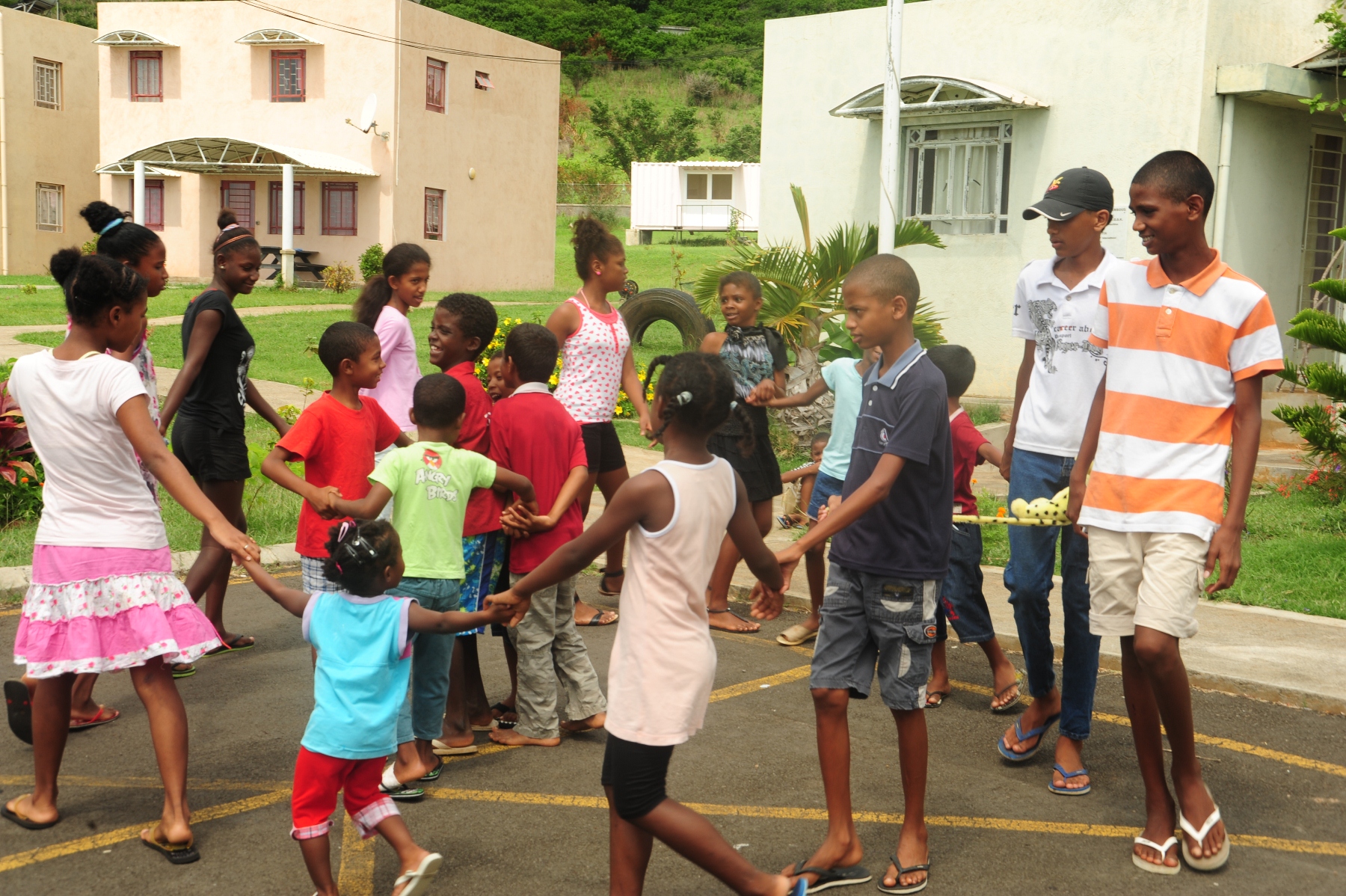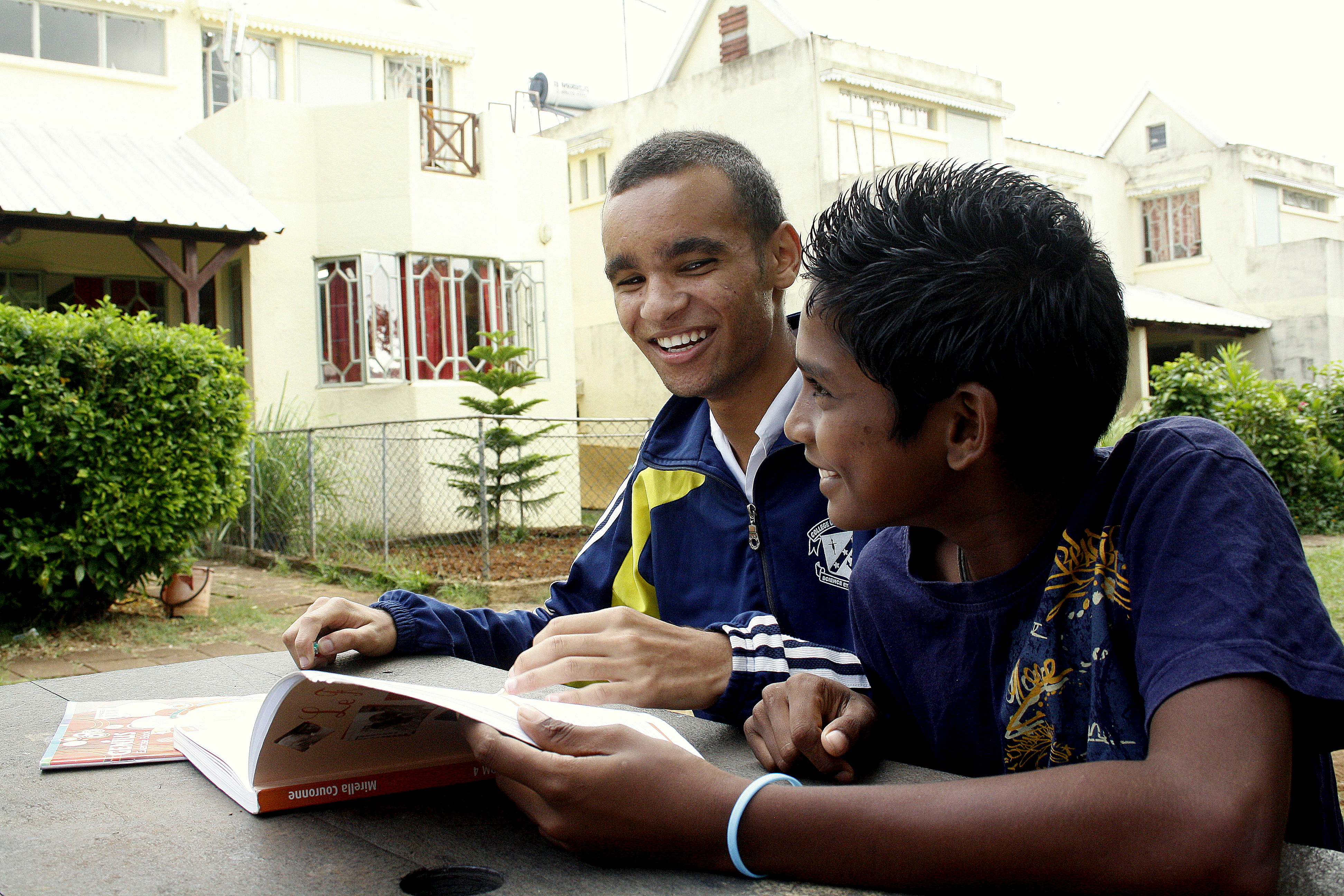
Vi er i Mauritius
One of Africa's most prosperous economies
.jpg?width=800)
The Republic of Mauritius is an island situated in the Indian Ocean, just off the south coast of Africa. Its capital is Port Louis. Experts have called it an African social and economic success story. Democratic elections are held on a regular basis and human rights are generally respected and protected.
Economically, the island once heavily depended on the cultivation of sugar cane. However, over the last decades, the country's economy has diversified. The production of textiles and textile-related products began in the 1970s. Mauritius' palm-fringed beaches continue to attract thousands of visitors from all over the world, making tourism another main pillar of the country's economy. Mauritius is admired for its rich flora and fauna. Some of the plants on Mauritius cannot be found anywhere else on earth. Owing to its history, Mauritius has always been a melting pot of cultures and ethnic heritage.
In spite of progress, poverty is still present on the island
Since independence, Mauritius has developed from a low-income country with an economy that was largely based on agriculture to a middle-income country with a more diversified economy. Infant mortality rates have dropped, universal access to health care has been secured, malaria and polio eliminated and nearly the entire population has access to clean drinking water. According to the Central Statistical Office, fertility rates have also dropped noticeably over recent years while life expectancy has been on the rise. However, poverty has not fully disappeared from the island. Neither has violence against women, children losing parental care as a result of poverty or the social exclusion of children who suffer disabilities. In this tropical paradise, there is still a share of disadvantaged and poor people, particularly in rural areas.
The United Nations Human Development Index analyses and evaluates the development situation of a country by looking at a variety of different factors. According to the index, Mauritius is currently ranked 80 out of 187 countries. HIV/AIDS does not affect Mauritius to the same extent as it affects most other African nations: according to a 2010 UN AIDS report, there are currently around 8,000 people in Mauritius living with HIV/AIDS.
Children are at risk of exploitation
.jpg?width=800)
A number of indicators clearly show how much progress Mauritius has made concerning the protection of its children. The country's infant mortality rate dropped from 15.3 per 1,000 live births in 2007 to 10.9 in 2013, universal access to education has been secured and a number of infectious diseases have virtually been eradicated. The constitution of Mauritius clearly prohibits forced labour and slavery.
Although the government of Mauritius has significantly strengthened its legal framework to fight child labour, the commercial exploitation of minors has not completely disappeared. Girls aged ten or even younger have been found in prostitution. The prevalence of child labour may be fairly low but children are still involved in agricultural activities, street vending and domestic service. Many of these children work in rather hazardous environments where they have to use dangerous machinery. Mauritius remains a country in which children are subjected to sex trafficking. Young girls from all different parts of the island, in particular from Rodrigues Island, are forced into prostitution both within Mauritius and abroad.
Child abandonment continues to be a major problem in Mauritius. Poverty and change in partners are cited as the main reasons. Over recent years, the number of street children has increased across the island. Street children are highly vulnerable to physical and sexual abuse, neglect and violence.
SOS Children's Villages in Mauritius
SOS Children's Villages has been working in Mauritius since 1992.
Strengthening Families: Since 2004, SOS Children's Villages has been running SOS Family Strengthening Programmes, aiming to strengthen existing family ties and to enable children who are at risk of losing the care of their family to grow up within a stable family environment. In 2014, nearly 900 children benefitted from our support in Bambous. Beau Bassin and Curepipe.
Family-based care: Children whose parents cannot take care of them can find a loving home in one of the SOS families in SOS Children's Villages Bambous and Beau Bassin. Around the age of 11, government policy requires that boys and girls live in different households. At this point, the children move into a new SOS family within the village.
Support for young people: Our SOS Youth Programmes provide young people with support until they are able to live independently. Great attention is paid to ensure they receive the right kind of education and training so that they can get a job.
Education: We provide pre-school education to young vulnerable children, and the SOS Vocational Centre trains young people so that they can find a job.